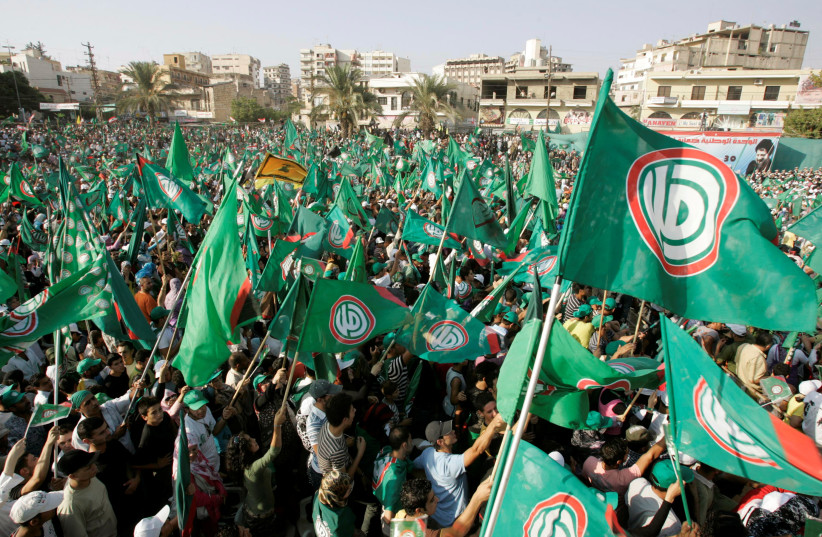Lebanon's new legislature narrowly elected veteran Shi'ite Muslim politician Nabih Berri for a seventh term as speaker of parliament in a chaotic first session that showed the deep political divisions likely to impede decision-making.
Berri, 84, won 65 votes in the 128-member parliament, where the role of the speaker is reserved for a Shi'ite Muslim under an unwritten sectarian power-sharing pact.
It was the slimmest majority ever won by Berri, reflecting the make-up of a new parliament in which the Iran-backed armed Shi'ite movement Hezbollah and its allies lost the majority they won in 2018 and independent newcomers gained around a dozen seats.
Tuesday's session was the first since the new parliament was elected on May 15, in the first vote since Lebanon's economic collapse and the Beirut port explosion of 2020 that killed more than 215 people.
Berri, who leads the Shi'ite Amal Movement, has held the role of speaker since 1992 and is a close ally of Hezbollah.

Elias Bou Saab, a former education minister, was elected as deputy speaker, a role reserved for a Greek Orthodox Christian.
Bou Saab, allied to the Hezbollah-aligned Free Patriotic Movement of President Michel Aoun, won with 65 votes in the second round of voting against Ghassan Skaff, a newcomer MP who identifies as an independent.
The wins mean Hezbollah's allies retained two important posts in the parliament.
Fragmentation
The close calls were the first glimpse of how fragmented and polarized Lebanon's new parliament would be, with no single bloc enjoying a simple majority.
Opponents of Hezbollah including the Saudi-aligned Lebanese Forces - a Christian faction - gained seats.
The at-times chaotic session was hit by several power cuts that made the vote count inaudible, leading to protests from MPs. There were also angry exchanges on how the voting should be carried out and how to count protest votes.
Newcomer MPs vocally opposed the election of members to some of parliament's leading posts based on sectarian affiliation -- done by custom rather than by law -- and announced they were withdrawing their candidacies for that reason.
The dozen opposition newcomers took their seats after an unexpectedly strong breakthrough by reform-minded candidates into a system long dominated by the same sectarian groups.
A group of them walked to parliament on Tuesday morning from the entrance of the Beirut port in a tribute to the more than 215 victims of the explosion and to underscore their support for a probe into the blast stalled by powerful politicians.
The opposition lawmakers walked past metal barricades outside which they had protested in 2019, when unprecedented anti-government demonstrations rocked Lebanon.
Some of the votes cast in the secret ballots carried messages echoing grievances against the sectarian elite that have steered Lebanon into its worst instability since the civil war.
They included votes for anti-Hezbollah Shi'ite thinker Lokman Slim, who was killed in February 2021, as well as "justice for the Beirut blast."
"It's clear there is a big political battle in parliament... Things won't be calm and its clear that the parliament will be multi-dimensionally polarized," newcomer MP Michel Douaihy told Reuters as he left a darkened parliament chamber amid a power cut.
There were several power outages during the session, a result of chronic electricity shortages that have prevailed since the 1975-90 Civil War and have been made worse by the economic collapse.
Analysts have warned that the divisions were likely to produce political paralysis that could further delay passing reform laws needed to drag Lebanon out of economic disaster, and could create a vacuum in top leadership positions.
Lebanon's system of government now requires Aoun, a Maronite Christian, to consult with lawmakers on their choice for prime minister, which must go to a Sunni Muslim.
Aoun, who has yet to set a date for the consultations, must designate the candidate with the greatest support to form a cabinet - a process that can take many months.
Outgoing Prime Minister Najib Mikati is widely seen as leading candidate for the post again.
